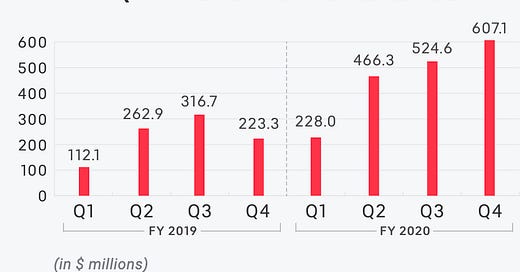The Fitness Company Everyone Laughed At, But Now Wants A Piece Of
A detailed breakdown of the hottest company in fitness, including sector trends and revenue forecasts.
Every morning I write an email discussing the business and money behind sports. If you would like to receive it directly in your inbox, subscribe now.
Friends,
Peloton, a fitness equipment and media company, reported earnings yesterday after the close and they absolutely crushed it.
Here’s a high level overview of the financials (Source):
Peloton reported …


